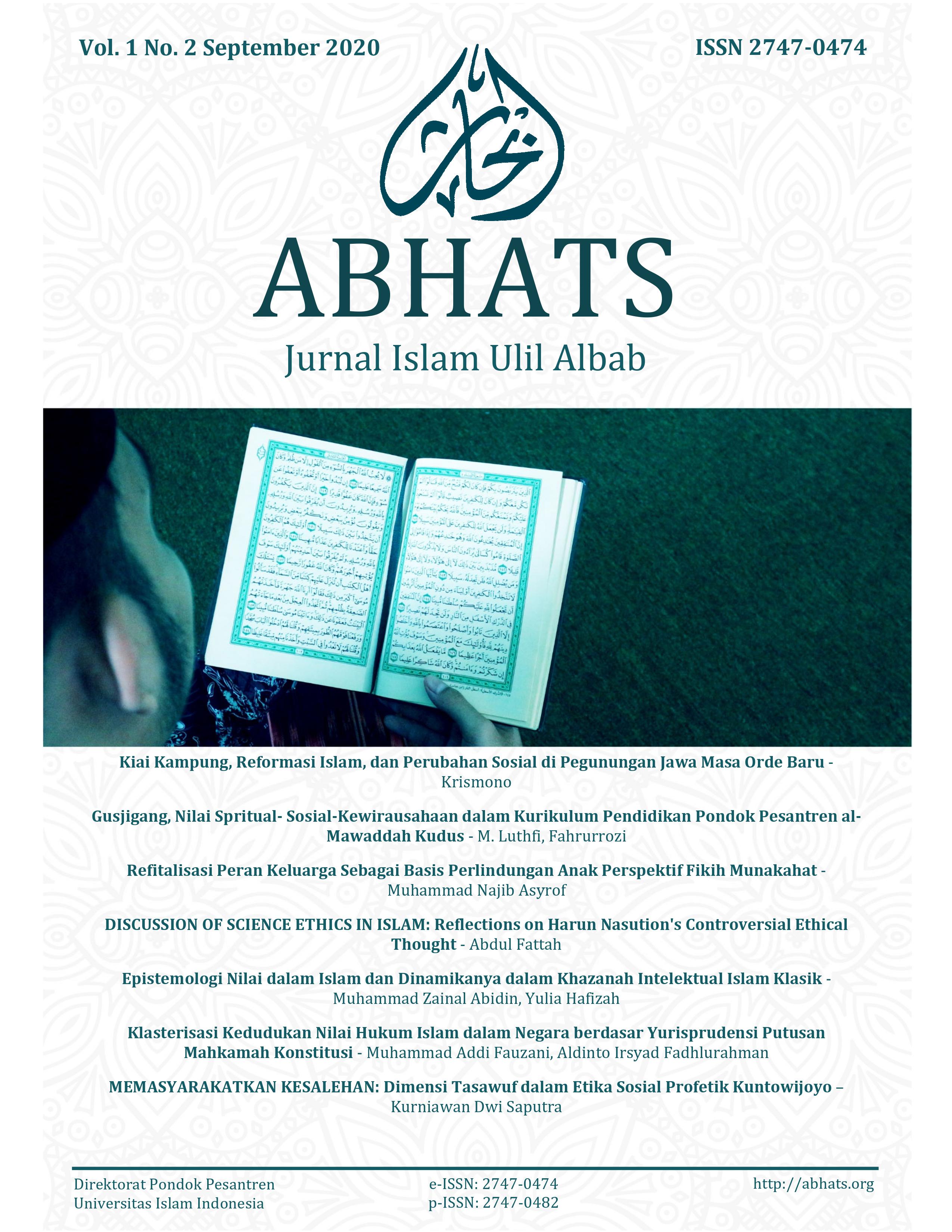Main Article Content
Abstract
This article departs from the view that the construction of values /
morals / ihsan in Islam cannot be separated from the construction of
faith (akidah) and Islam (worship). Similar to the relationship
between ontology (wujud), epistemology (ma'rifah), and axiology
(qimah). The classical Islamic tradition is very rich with the
discussion on the epistemology of value, and this needs to be
addressed when issues of faith, worship, and values become
problematic and are seen as dichotomous in moslem society. The
results of the study: First, the epistemology of values in the intellectual
realm of Islam can be grouped into two main schools, namely: 1) The
rational school with 'aql as a source of value and has the ability to
know good and bad, even to know Allah Swt. Also known as objective
ethics; 2) Traditional schools, with revelation or inspiration / intuition
as the basis of values. It is also called subjective ethics, because the
scope of its application is in certain areas, namely the believers, who
believe in the truth of the revelation. Second, the issue of values or
morals is closely related to knowledge of the ins and outs of the soul
as is the opinion of rationalists (Muslim philosophers), but the
experience dimension also plays an important role as the opinion of
traditionalists / intuitionists. Third, the dichotomous view of the
source of value makes it very possible for the birth of disintegration
in the main pillars of Islam, namely: Iman, Islam, and Ihsan.
